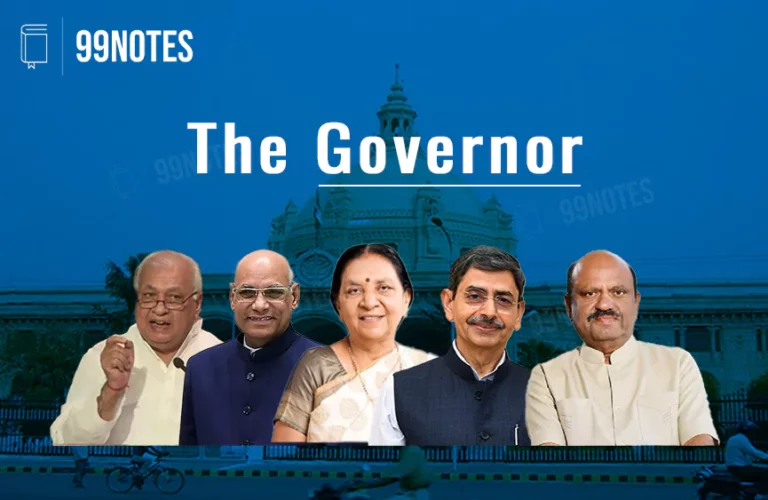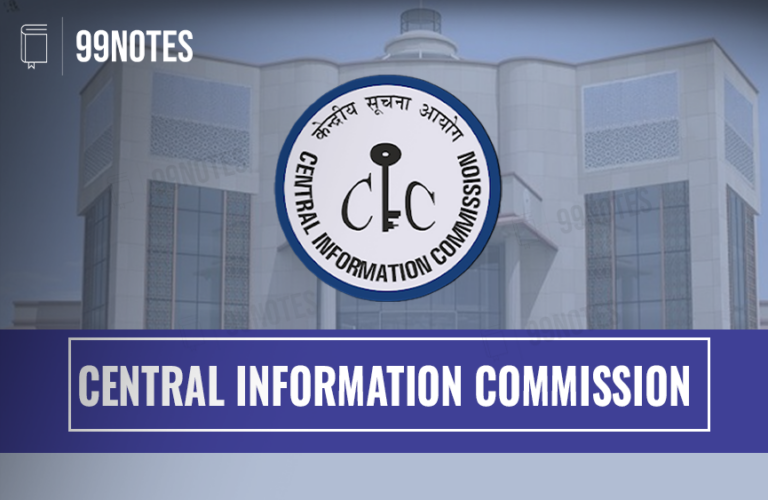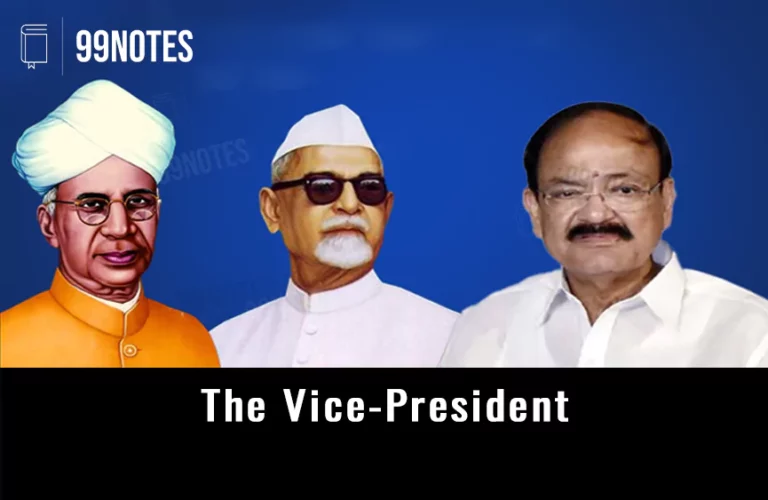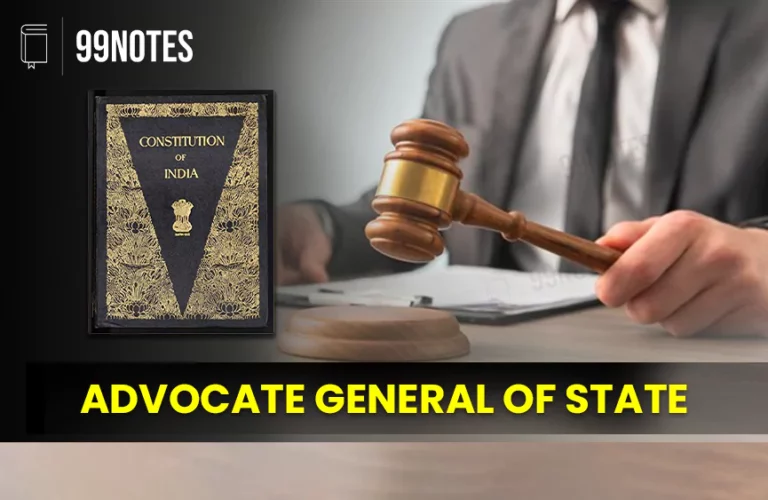Proposed Electoral Reforms
Over the years, several committees set up by the union government, Law Commission reports, and the Election Commission itself have proposed wide-ranging electoral reforms such as issues related to the criminalisation of politics, electoral financing, the autonomy of the Election Commission, Anti-defection law, paid news, simultaneous elections, Right to reject, Model code of conduct etc. that we will discuss in this article.
| Government Committees Related to Electoral Reforms |
|
Criminalisation of Politics
- The criminalisation of politics has been at the forefront of the electoral reforms proposed by several commissions, including the Election Commission and Law Commission.
- As per the reports of the Association for democratic reform, the number of tainted representatives has been increasing with each Lok Sabha. In the current Lok Sabha (17th), 43% of representatives have some kind of criminal charges on them, of which 29% of them face serious criminal charges like rape, whereas, in the 16th Lok Sabha, the percentage of representatives with criminal charges stood as 34%.
Issues associated with the criminalisation of politics
- Undermines fundamental principles of democracy like transparency, accountability, rule of law, etc.
- Betrayal of Public Trust: The incessant criminalisation of politics causes erosion of trust in the public for democratic processes and institutions.
- Compromises public interest: The criminal elements in politics prioritise self-interest rather than the public interest for which they have been elected. It also compromises governance and leads to corruption and misuse of public offices.
- Protection and shelter to criminal elements in society: Criminal elements in politics can facilitate and protect organised crime, affecting security and stability in the region.
- Obstructs the legal process: Politicians with criminal backgrounds may use their offices to influence legal processes and law enforcement agencies to evade accountability.
- Affects future leadership: Normalisation of criminalisation of politics may discourage youths from joining politics.
- Affects India’s democratic credentials internationally: The increasing number of representatives with criminal charges is negatively affecting India’s reputation as a democracy, and it is being reflected in the decline of its ranking on various democracy indexes.
Challenges in dealing with the criminalisation of electoral politics
- Weak legal framework: The slow pace of legal processes and loopholes in the existing laws allow the tainted politicians to continue with their offices.
- Weak Institutions: Institutions like the Election Commission do not have adequate power and mechanisms to hold the political parties accountable for fielding tainted candidates. The institutions have to work under the existing laws, which are not without loopholes, and they are also vulnerable to political interference.
- Political patronage: Such criminal elements enjoy political patronage through strong links with top leaders of the party and thus evade accountability.
- Political culture: In some regions, such criminal elements are glorified as being strong and defiant; this can also be attributed to our long struggle against colonial rule. This requires long-term concerted efforts from all sections of society.
- Identity Politics: Sometimes, religious, caste and linguistic identities are exploited by criminal elements to capture power.
Related Judicial rulings
Over the years, the Supreme Court has given several rulings to curb the menace of criminalisation of Indian electoral politics:
- Union of India Vs Association of democratic reforms case (2002): In this case, the Supreme Court ruled that every candidate contesting an election to the Parliament, State Legislatures, or Municipal Corporation must disclose their criminal and financial records and educational qualifications along with their nomination paper.
- Lily Thomas Vs Union of India (2013): In this case, the Supreme Court struck down section 8(4) of the Representation of People Act, 1951 that allowed MPs and MLAs who are convicted to continue in office until an appeal against such conviction is disposed of.
- Public Interest Foundation Vs Union of India Case (2018): In this case, the Supreme Court ruled that Candidates running for election under a particular party are required to inform the party about any ongoing criminal proceedings against them. The concerned political party must publicly disclose such details on its website regarding candidates with a criminal record. Additionally, both the candidate and the party must make declarations in local newspapers and publicise through electronic media to inform the public about the candidate’s history.
Proposed reforms related to the criminalisation of Politics
- More grounds for disqualification: The Law Commission, in its 244th report, has recommended two more grounds for disqualification:
- Disqualification of the members of Parliament and state legislatures at the stage of framing of charges in case of offences that attract a maximum punishment of 5 years or above. The Election Commission and National Commission for Review of the Working of the Constitution (NCRWC) have also recommended similar reforms in their proposals.
- Filing a false affidavit should be considered as a ground for disqualification. Further, the punishment should be increased from a maximum of 6 months to a minimum of 2 years and filing a false affidavit should be included under “corrupt practices”.
- Make declaration of assets and criminal cases necessary for qualification of membership of legislature: Law Commission, in its report on Reforms of Electoral Laws, 1999, proposed that declaration of assets and criminal cases pending against the candidate should be made compulsory for the qualification of membership of the house of the people.
- Expedition of cases against MPs and MLAs: as per proposals by the Law Commission, the cases against MPs and MLAs should be expedited, day-to-day trials should be conducted, and the trials should be completed within a year. On the expiry of the given period, the following actions can be taken:
- The MP and MLA may be disqualified at the expiry of the given period.
- Alternatively,his/her right to vote in the legislature, remunerations, and other perquisites should be suspended.
Electoral Financing
- One of the significant drawbacks associated with the electoral process is the significant influence of money, especially illicit unaccounted money.
- Securing funds for elections is an undeniable necessity for politicians, and this necessity serves as a potent factor of political corruption.
- As per a report By the Centre for Media Studies, a whopping ₹55000-60000 crore were spent by the political parties in the general elections to the 17th Lok Sabha, almost twice the amount spent in the previous general elections to the Lok Sabha.
- Usually, the large chuck of the electoral financing comes from the big business houses, the contractors and the illicit profiteers who donate liberally and then reap the benefits when the political party comes to power.
Developments related to electoral reforms
- JP movement of 1974 was perhaps the first campaign to talk about reforms in electoral financing; besides other electoral reforms, the movement highlighted the role of black money in the elections.
- Over the years, the successive governments at the centre have constituted several committees, such as the Indrajit Gupta Committee, the Administrative Reforms Committee, and The National Commission to Review the Working of the Constitution, which have delved into issues like curbing anonymous donations, use of black money, state funding of elections etc. and gave recommendations. Besides them, the Law Commission and Election Commission have also made several recommendations in this regard, which we will discuss in this section.
Issues associated with electoral financing
- Lack of transparency: The process of political contributions in India is virtually opaque. It is almost impossible to identify the donor, particularly after the introduction of electoral bonds. Due to fear of retribution, very few donors are willing to disclose their donations. As per the 2021-22 report of the Association for Democratic Reforms (ADR), 66% of the income of 7 National parties came from unknown sources; of the unknown sources, 83% came through electoral bonds.
- Use of Black money: Political parties and candidates sometimes receive funds that are not properly accounted for, leading to a lack of transparency in campaign financing.
- Corporate funding: Corporate donations to political parties raise concerns about undue political influence and potential for quid pro quo arrangements. To make the situation worse, the government removed the ceiling on corporate funding.Further, the government has also relaxed the provisions related to donations by foreign companies.
- Ceiling on electoral expenditure: Exclusion of expenditure incurred by party and others from the purview of the ceiling limits defeats the purpose of the electoral expenditure ceiling.
Challenges in dealing with illicit electoral financing
- Inadequate legal framework: Loopholes in the existing laws allow the political parties to circumvent the rules. For example, currently, political parties are not required to disclose the identities of smaller donors. This provision is misused by breaking the donations into smaller denominations.
- Lack of transparency: The current mechanism of electoral financing operates in a very opaque manner. For example, the majority of the political donations now come through electoral bonds, and the identity of the electoral bond cannot be disclosed in normal circumstances.
- Cash donation: A large chunk of electoral funding comes through cash donations, which are virtually impossible to trace. Even though the government has made a provision (In the Income Tax Act) to restrict cash donations above ₹2000, it is not strictly followed.
- Limited regulatory oversight: The Election Commission does not have adequate powers and capacity to regulate illicit electoral financing. The Commission’s recommendations regarding disclosure norms and restriction on cash transaction (in the Representation of People Act, 1951) was overlooked by the government.
Proposed Reforms Related to Electoral Financing
State/Public Funding of Elections
It involves government-giving funds to political parties and candidates for contesting elections. The main purpose is to increase transparency, fairness and integrity of the electoral process.
The idea of state funding of elections is not a new concept; it was discussed in the constituent assembly debates. Though it was agreed in principle, the government argued that it would put an unbearable burden on the exchequer.
Direct and Indirect state funding of elections
- Direct funding of elections: This involves the government providing direct monetary assistance to political parties and candidates to contest elections.
- Indirect funding of elections: It involves tax exemptions, provision for travel and transport expenses, security expenses, free campaign materials and, public spaces for the campaign, etc.
Argument in favour of state funding of elections
- Reduces dependency on private donations: Private donations, especially corporate donations, often come with the risk of undue political influence and potential for quid pro quo arrangements.
- Provides a level playing field: State funding can help provide a level playing field to less affluent parties who do not have ample resources to compete with resourceful parties. It also ensures fair representation of the society.
- Mitigates the menace of illicit financing: State funding, along with a strong regulatory framework, can be effective in checking illicit electoral financing.
- Strengthens public trust in democracy: Less dependency on private funds helps build trust among the public regarding elections and the overall democratic process.
Argument against state funding of elections
- Allocation criteria: Building a fair and equitable mechanism for the allocation of funds to political parties can be an uphill tax.
- Potential misuse of funds: State/public funding is vulnerable to misuse by political parties and candidates. The funds could be diverted for other activities and for personal gains and hence will require a strong regulatory mechanism.
- The burden of the exchequer: State funding of elections can put a strain on the public exchequer, especially in developing countries.
- May still not eliminate private funding: Even after state funding, there is no guarantee that private funding will completely stop. Since most of the political donations come from anonymous sources, a very strong regulatory mechanism will be required to curb private funding.
- Public perception: State funding of elections with taxpayers’ money may cause an unfavourable public perception regarding the democratic process. It may be perceived that the government is diverting away funds that can be used for essential public services.
Various Committees related to state funding
- Indrajit Committee on state funding of election
- The committee endorsed the state funding of elections and stated that it is justified constitutionally, legally and on the grounds of public interest in order to establish a level playing field for smaller parties.
- The committee recommended two limitations:
- The funding should be limited to National and state parties only and should not be extended to independent candidates.
- The short-term funding should be given in kind only and not monetary, given the economic condition at that time.
- Law Commission report on electoral reforms (1999)
- It came to the conclusion that total state funding of elections is only desirable so long as political parties are forbidden from taking private funds.
- It concurred with the Indrajit Gupta committee that the then economic conditions would not allow total state funding of elections.
- It also recommended that before initiating public/state funding, an appropriate regulatory mechanism concerning political parties (internal democracy, maintenance and accounting of funds, audit and submission to Election Commission, etc.) should be put into place.
- 2nd Administrative Reforms Committee (ARC): The committee, in its report on “Ethics in Governance”, endorsed state funding of elections to prevent “illegitimate and unnecessary expenses” in elections.
- The National Commission to Review the Working of the Constitution (2002)
- It did not endorse public funding of elections.
- Nevertheless, it concurred with the Law Commission report that an appropriate regulatory framework regarding political parties should be put into place before considering state funding of elections.
Limits on electoral expenditure and accounting
- Expenditure Ceilings should be comprehensive: All expenditures by parties, candidates and their kin should be included in the ceiling limits. Any illegitimate expenditure to give inducements to voters, bribe officials or indulge in electoral malpractices should follow fines and penal proceedings.
- Auditing of election expenditure: The Election Commission of India, in its report, recommended that every registered political party should publish its accounts annually, and agencies appointed by the Election Commission should audit such accounts.
Limits on contribution
- The primary objective of imposing contribution caps on individuals and organisations is to improve equality of opportunity by decreasing reliance on a small group of affluent donors and increasing accountability of candidates to the electorate.
- The ceiling should apply to both donor and recipient: The recipient parties and candidates should have a limit on the amount they receive from certain categories of donors. It will make their financing more broad-based.
Lowering of cap on anonymous and cash donations:
- The Election Commission has proposed to the government the provision of mandatory disclosure of all contributions received by the political parties in excess of ₹2000, as against the current cap of ₹20,000.
- The Commission has sought to limit the total cash donations to a political party to 20% of its total contribution or ₹20 crore, whichever is less.
Other reforms proposed by the Law Commission related to electoral financing
- The period of regulation of election expenses should be extended: Currently, regulation of election expenses incurred by the candidates or their election agents extends from the date of nomination to the date of declaration of the results. As per the recommendation by the Law Commission, the period should commence from the date of notification of elections until the date of declaration of results.
- Authorisation for corporate donations to political parties:
The Companies Act of 2013 should be amended to mandate that the resolution authorising the company’s donations to a political party be passed by the company’s Annual General Meeting (AGM) rather than by its Board of Directors.
- Public access to information: Even though there are there are rules and regulations to reduce the role of money power in elections unless there is public access to such information, the mechanism cannot be fully transparent. Hence, the RP Act 1951 should be amended to mandate the Election Commission to make all the contribution reports submitted by all political parties publicly available on its website.
- Extending Disqualification Period for Candidates Who Fail to Lodge Election Expense Reports: The disqualification period should be extended from the current 3-year period up to a 5-year period so that a defaulting candidate may be ineligible from running in at least the upcoming elections.
Anti-Defection Law
Various Aspects of Anti-defection law in India and proposed reforms have been discussed in detail in a separate chapter.
Paid News and Political advertisement
- Paid news refers to the phenomenon where media outlets, journalists, or news organisations accept payment or any other benefit in exchange for providing favourable coverage to a particular candidate, party, or issue.
- Publishing paid news along with political advertisements being presented as news involves the use of unaccounted money and underreporting of election expenses of candidates.
- Such practices not only deceive the electorate but also deny a level playing field to other candidates and parties.
Proposed reforms related to paid news and political advertisement
- The Press Council of India, in its report, had suggested that ‘paid news’ be made a “corrupt practice” under section 123 of the Representation of People Act, 1951.
- The Election Commission has recommended the publishing of paid news or abetting the publishing of paid news be made an “electoral offence” under the Representation of People Act, 1951.
- As per the Law Commission recommendation, not only would paying for the news be an offence, but the person doing this offence would also be disqualified under section 8(3) of the Representation of People Act, 1951.
Right to Reject and Right to Recall
- Right to reject: This is a provision that allows voters to reject all candidates contesting in an election if they find none to be suitable.Though there is a provision for “None of the above” (NOTA) in Lok Sabha and assembly elections, it does not allow the rejection of candidates in case the majority of votes are polled in favour of NOTA.
- Right to recall: This is a concept that allows electors to petition for the removal of an elected representative from office before the completion of the term.
View of Law Commission
- The law commission does not endorse the extension of the NOTA option to introduce the right to reject. Instead, it favours decriminalisation and reform at the party level.
- The Commission is also not in favour of introducing the right to recall as it can lead to an “excess of democracy”, undermining the independence of elected candidates, increasing instability and neglecting minority interests.
Restriction on the Number of Seats from Which a Candidate May Contest
- Currently, a person can contest a general election or, a group of bye-elections or biennial elections to Rajya Sabha and legislative councils from a maximum of two constituencies.
- Sometimes, if a candidate contests from 2 seats and wins from both seats, in such situations, s/he vacates one of the seats. As a result, a bye-election would be required in one constituency involving avoidable labour and expenditure.
Proposed Reforms
- The Election Commission is of the view that the law should be amended to prevent a candidate from contesting from two seats simultaneously, or, in case this provision is retained, then the expenditure incurred in such by-polls should be deposited by the candidate.
- Similar views were taken by the Dinesh Goswami Committee and Law Commission reports. However, the Law Commission did not agree with the alternative proposal that the candidate should bear the expenses for the bye-polls.
Simultaneous Elections and One Nation, One Elections
It usually means the conduct of elections of all tiers of government (Lok Sabha, state assemblies and Local bodies) at the same time.
Recently, the government has pushed for One Nation, One Election and constituted a high-level committee under the chairpersonship of former President Ramnath Kovind to examine the issues relating to holding of simultaneous elections in the country and make recommendations.
Arguments in favour of simultaneous elections
- Impact on development programs due to MCC:
- During general elections, the Lok Sabha model code of conduct (MCC) is applicable throughout the country, and during general elections to state assembly, MCC is applicable throughout the state.
- Until the time MCC is applicable, except for routine administrative activities, other developmental programs, welfare schemes, and new capital expenditures remain largely suspended.
- As per NITI Ayog’s analysis shows that about 4 months or more every year, MCC is applicable in some or other parts of the country, thus, hampering developmental works.
- Massive expenditure by government and political parties:
- Conducting elections in India is a costly affair. Incidentally, the election expenditure in Lok Sabha elections is 100% borne by the central government, and election expenditure in state assembly elections is borne by both the centre and states. Such expenditures can be optimised if elections are held simultaneously.
- Frequent elections also play a major role in the mobilisation of funds by political parties. In the 2019 Lok Sabha elections, a whopping ₹60,000 was spent (As per the report of the Centre for Media Studies), nearly twice what was spent in the 2014 Lok Sabha elections.
- Extended deployment of government officers and security personnel:
- Conducting elections in India involves the deployment of an enormous number of government officials and armed forces. In the 2019 Lok Sabha elections, nearly 1 crore government officials and security personnel were involved.
- Such a situation is clearly not desirable as it keeps the officials away from their original duty, especially the security personnel who could be better deployed for other internal security purposes.
- With frequent elections, politics trumps policymaking and governance:
- Frequent elections make the government and political parties to remain in perpetual campaigning mode.
- Electoral compulsion takes precedence over policymaking, leading to populist and short-sighted measures such as the announcement of freebies, loan waivers, increase in subsidies, etc.
- Elections in India also involve identity politics, causing polarisation on the basis of caste and religion etc., thus affecting the communal harmony in the country.
Arguments against the simultaneous conduct of elections
- Operational challenges: Critics argue that the enormous magnitude of elections in India makes its operation infeasible considering the logistics (especially EVMs and VVPATs) and security and human resources requirements.
- Constitutional and legal challenges: There are various unanswered questions that need to be addressed, such as:
- By what scheme should the terms of state assemblies and Lok Sabha be synchronised for the first time?
- What happens when the ruling party or coalition loses the majority mid-term?
- Whether the terms of Lok Sabha and state assemblies be fixed?
- Would benefit National parties at the cost of regional parties: The critics argue that holding National and state elections together may influence the voters to vote on national issues even in state elections.
View of Various committees/bodies on simultaneous elections
- Law Commission working paper (2018): The Commission held that simultaneous elections cannot be held within the existing frameworks; it suggested the following changes:
- Simultaneous elections can be conducted by amending the Constitution, Representation of People Act 1951, and Rules of Procedure of Lok Sabha and state assemblies.
- The no-confidence motion should be replaced by a constructive vote of confidence (Which means the government may only be removed if there is confidence in an alternate government).
- Election Commission: The Commission, in its feasibility report in 2015, suggested changes in the Constitution and the Representation of People Act for the implementation of one nation, one election.
- Niti Ayog: In a paper titled “Analysis of simultaneous elections”, the NITI Ayog has worked out a proposal where Lok Sabha elections and state assembly elections can be held simultaneously in 2 phases.
Proposed solutions by NITI Ayog
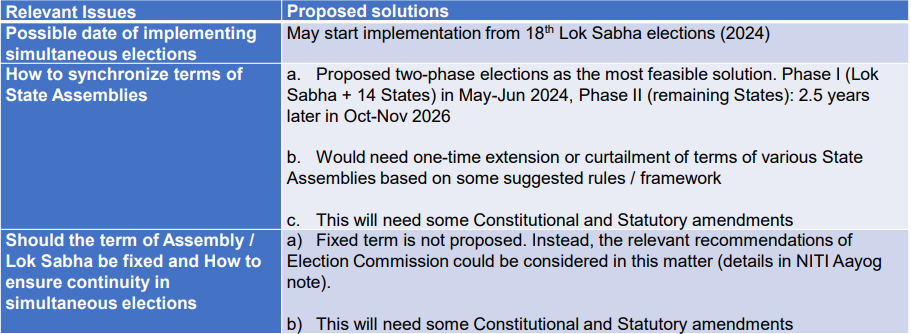
Strengthening of Election Commission
The independence and autonomy of the Election Commission are vital for the free and fair conduct of elections and also for the overall health of the electoral democracy. Hence, there have been demands from within and by various committees regarding the need to strengthen the Commission.
The issues and proposed reforms in the Election Commission have been discussed here (Link to the relevant section of Election Commission).
Statutory backing for Model Code of Conduct
- The Model Code of Conduct is a set of guidelines governing the conduct of political parties and candidates during the elections. These guidelines cover various aspects, including speeches, polling procedures, election manifestos, and general conduct.
- The primary aim of the Model Code of Conduct is to ensure fair and unbiased elections by preventing the misuse of power by ruling parties. It specifically addresses practices considered corrupt, such as hate speeches, communal provocation, religious appeals, and promises that could unduly influence voters.
- It is effective immediately on the announcement of the election schedule.
- While it does not have statutory backing, certain provisions can be enforced through other provisions like RPA 1951, CrPC and IPC.
Dinesh Goswami Committee recommendation regarding Model code of conduct:
The committee has recommended that some practices should be brought under the purview of electoral offences, such as:
- Combining official visits with works relating to elections or making use of official machinery for such purposes.
- Using government transport for election purposes.
- Issuing of advertising at the cost of public expenditure.
- Using official new media for partisan coverage.
- Announcing or granting any financial grants.
- Laying of foundation stone projects or inauguration of any scheme or project.
- Making ad hoc appointments in government or public undertaking.
- Entering any polling station or place of counting by a minister except in the capacity of a voter candidate as an authorised agent.
Conclusion:
Even though the need for electoral reforms has been echoed across political parties, there has not been any substantial progress. Most of the recommendations of various committees, such as the Election Commission and Law Commission, have not been implemented.
Electoral reforms are a continuous process and essential for a healthy and fair democracy; hence, it is imperative for the government to implement the recommended measures by building consensus with all stakeholders.

